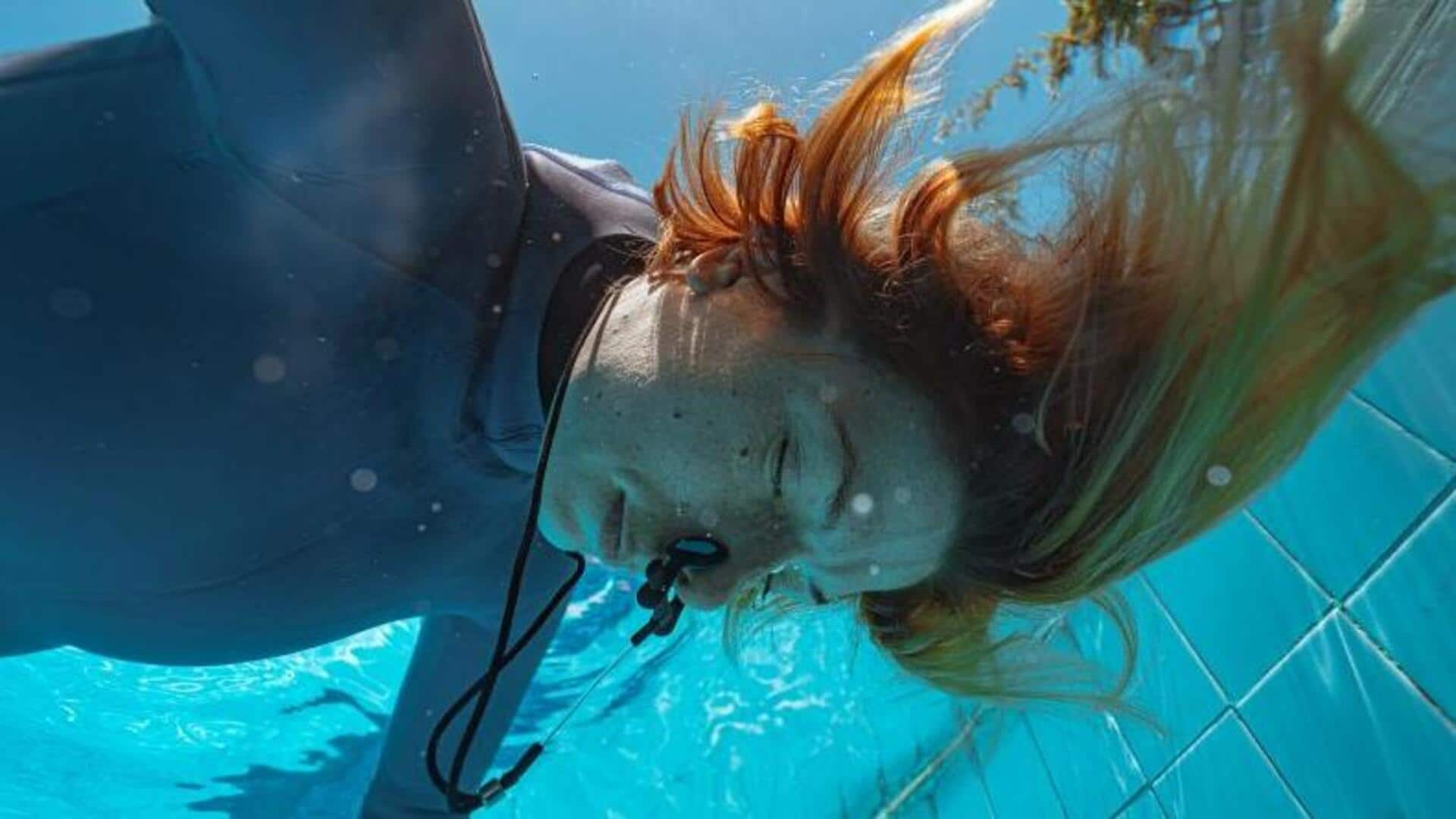
Exploring the world of static apnea
What's the story
Static apnea, a freediving discipline, is the practice of holding your breath underwater as long as possible without any movement. It's not a mere exercise in pushing boundaries; it's a pursuit of breath control mastery, laser-sharp mental focus, and deep intuition for your body's subtle signals. For novices, it's a demanding yet gratifying experience, revealing unexpected layers of personal strength and serenity.
Tip 1
Start with proper breathing techniques
Before you even try to hold your breath, you need to know how to breathe right. Start by practicing diaphragmatic breathing on land. Inhale deeply and slowly through your nose, expanding your diaphragm fully, then exhale gently through your mouth. This technique maximizes oxygen intake and helps condition your body for longer breath-hold periods by promoting relaxation and slowing your heart rate.
Tip 2
Understand your body's signals
When you push your limits in static apnea, understanding and respecting your body's signals is crucial. At first, you will feel an urge to breathe, resulting in involuntary diaphragm contractions. These contractions are normal, but it's important to differentiate between the urge to breathe and the true need for oxygen. Don't push too hard too soon, it can be risky; always focus on safety, not personal records.
Tip 3
Practice in safe conditions
Never ever compromise on safety in static apnea training. Always train in shallow water with a buddy or coach who knows freediving safety protocols. Even the most seasoned freedivers adhere to this rule because blackouts can happen unexpectedly underwater. Training in a controlled environment ensures that assistance is readily available in case of any issue.
Tip 4
Set realistic goals and progress gradually
Take baby steps, set achievable targets Start with comfortable breath-holds around 15 seconds and slowly build up from there Every small increase is a big win! It might feel slow at first, but with time and consistency, you'll see progress This way, you'll not only ensure a safe and effective start in static apnea, but also cultivate a deeper understanding of your breath-holding abilities.